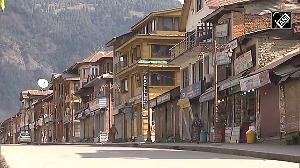Large special economic zones are likely to have their own local governance bodies, on the lines of municipal corporations.
The commerce and industry ministry is in talks with state governments to prepare guidelines for setting up local governance bodies inside these tax-free industrial enclaves.
Sources said these bodies may either be modelled on the lines of townships developed by state industrial development authorities like the New Okhla Industrial Development Authority (Noida) in Uttar Pradesh, or follow a Jamshedpur-like model, where a corporate house takes care of civic infrastructure.
"The commerce ministry will prepare the guidelines but it is for the state government to adopt them," an official said.
Sources also pointed out that governance bodies will be established in only large SEZs, especially the ones which are multi-product zones, as a minimum area of 1,000 hectares is required to establish such a zone.
Moreover, big sector-specific SEZs, which are a little smaller than the multi-product zones, will also be brought under the purview of local governance bodies.
Small zones, especially from the infotech sector, which are typically between 10 hectares and 50 hectares, will not have such bodies.
The issues being debated include law and order, birth and death registrations, as well as collection of property-related taxes and maintenance of civic infrastructure.
"For example, if the property tax is collected by the local municipality or panchayat, then it will be their responsibility to maintain the civic infrastructure and not the developer. The commerce ministry is trying to tackle such issues," the official added.
This move is logical because in SEZs, as much as 50 per cent of the land area will be of non-processing nature, which will house residential quarters for employees of the SEZ units, malls, multiplexes as well as schools. Moreover, many zones will became operational from this year, as construction activities are in final phase.
Some of the multi-product zones are likely to have population of above 50,000 people.
In fact, the Parliamentary Standing Committee on Commerce, headed by senior BJP leader Murli Manohar Joshi, had recommended that all the SEZs should get the cover of representative local governments like panchayats and municipal bodies.







 © 2025
© 2025